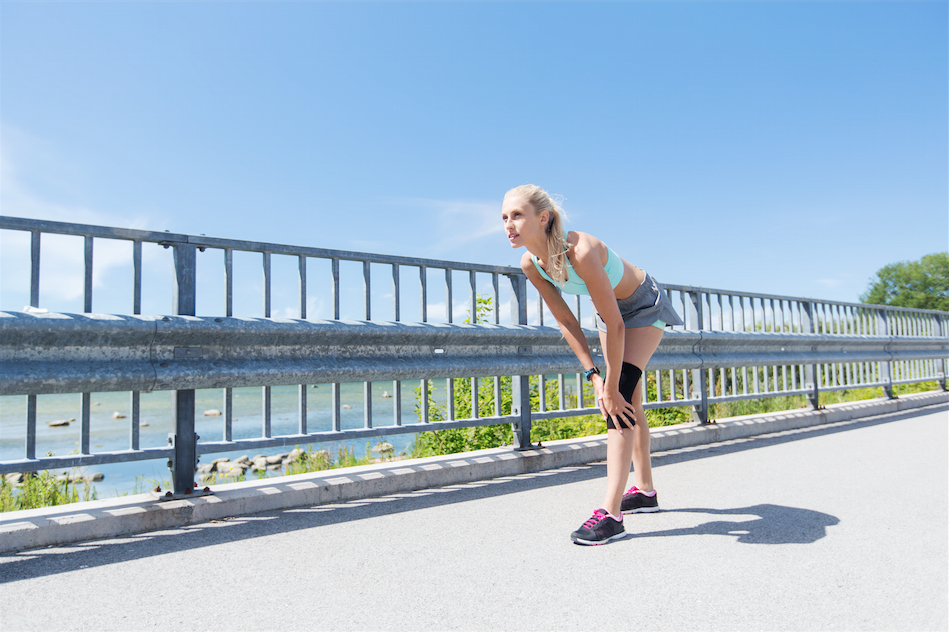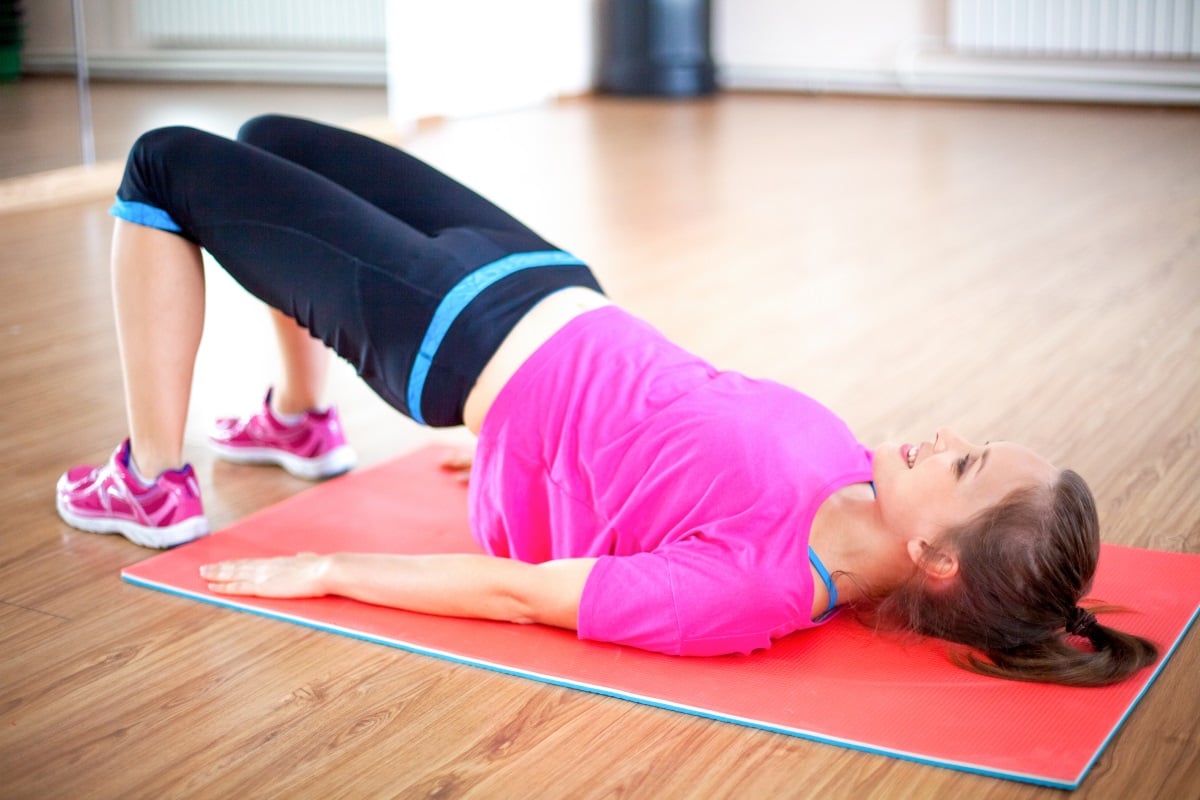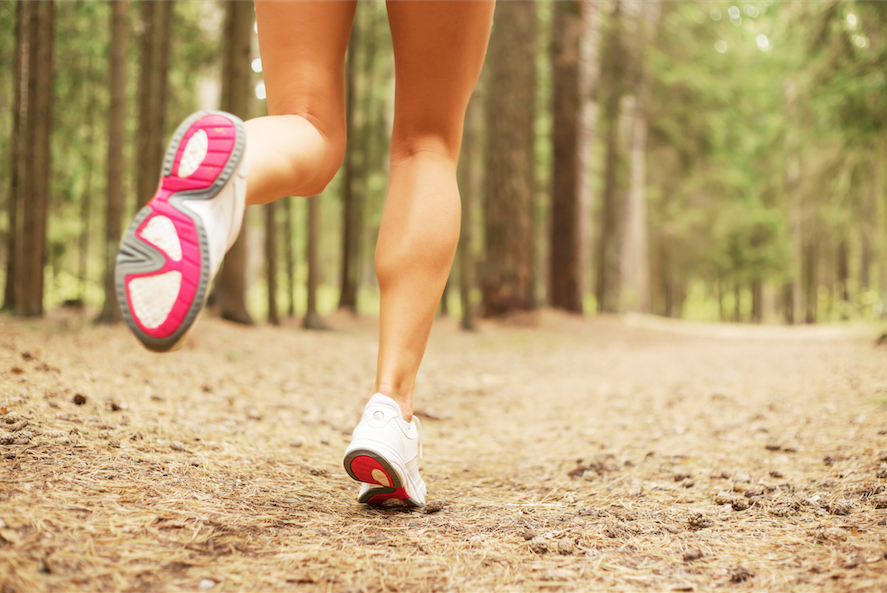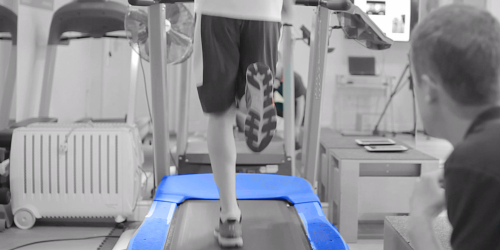Are you a keen runner? Do you ever suffer from knee pain or feel a niggle in your knee when running? If you answered “yes” to the above, you’re not alone.
In fact, the British Journal of Sports Medicine published a study that reported nearly half of all running injuries involved the knee.
Supportive braces of various types have become an increasingly popular way of mitigating these niggling pains.
But are braces a proper solution, or merely a palliative? Read on to find out everything you need to know about knee braces for runners…
Need an expert assessment online now?
Find out how we can assess, diagnose and treat in our online consultations.
What is a knee brace?
A brace, made from stretchy elasticated material like neoprene, plastic or foam, is worn over the knee during exercise to help provide support and alleviate the pain from injury or a chronic knee condition.
The brace offers a way to improve mobility and prevent further injuries.
Have you ever been taught how to run? Whether you're an experienced runner or a complete beginner training for your first event…
What types of knee braces are there?
There are a lot of different knee braces, all designed for assisting a wide range of conditions. Most of these are for post-surgery or injury rehabilitation, or for assisting people with chronic diseases like osteoarthritis.
Braces for running are much simpler, sometimes as basic as a neoprene sleeve or wrap.
Basic Knee Braces
These are the most common and cheapest braces that you’ll find. Usually no more than a simple elasticated sleeve or wrap, they come ‘one-size-fits-all’.
You’ll find they have a range of designs, with or without holes for your kneecaps, and offer minimal support.
Basic knee braces are used for a wide range of issues, from post-surgery support to mild long-term pain, and are available in almost any pharmacy or sporting store.
Advanced Knee Braces
Advanced knee braces tend to be more complicated in design, and offer more support than a basic brace. Also available in either wrap-around or sleeves, these will be recommended after more severe injuries.
The most advanced of these ‘elite’ braces are designed for more serious, ongoing conditions. You are unlikely to need one of these unless it has been recommended to you by a health professional.
How can a knee brace help my running?
Does wearing a knee brace prevent running injury? Can it help you run longer and better?
The truth is, maybe.
The manufacturers claim their products work well, but there still seems to be some discrepancy between lab results and the real world.
There are only really three reasons you should wear a brace:
- Proprioception: Although we often associate braces with support or pain relief its most important function is likely to be something called proprioception. This is feedback from the sensors in the joint to the brain telling it how and when it is moving. When the knee is injured this feedback can be reduced and in certain cases a knee brace can serve to help this situation.
- Structural Support: The most common use of knee braces is for patients who are recovering from a knee injury such as ligament tear, as a knee brace provides some support which can aid recovery. However, the types of braces used fall under the ‘Advanced’ category. As medical equipment, they shouldn’t be worn unless they have been prescribed by a medical professional.
- Pain Relief: Wearing a knee brace can bring some comfort to those suffering from chronic pain caused by conditions such as osteoarthritis.
Many athletes, footballers, weightlifters and runners use basic knee braces to help minimise the impact that high intensity repetitive strain can cause on their knee joints and ligaments.
The most important function performed by a knee brace is to relieve enough pain and provide enough support so that you can perform the moderate exercise required for a full recovery, or your ongoing good health.
Moderate exercise is essential to condition the leg muscles so they can support your knee better.
Ideally this will gradually diminish the need to wear a brace at all.
How do I know if I need a knee brace?
Simply put, you don’t need a knee brace unless one is recommended to you by a health professional.
If you’ve recently had surgery on your knee or a mild injury, you may benefit from using a brace.
Those with certain conditions such as Anterior Knee Pain (PFPS) and Patella Tendinopathy may find a knee brace beneficial.
The easiest way to find out is to see us for a consultation where our knee experts will give you the best advice and to get you moving with confidence again.
Generally speaking, if you feel that a light strap or brace makes you feel better then there is rarely any harm to come from wearing one.
But it is important to remember that braces and strappings should only be used to aid recovery through a sensible regime of physiotherapy exercises.
They are not a replacement for personalised and professional rehabilitation programme, for which the results are often much more noticeable and longer-lasting.
Where can I find a knee brace for running?
You can buy very basic braces or ‘compression sleeves’ (a very basic version) in many pharmacies and sports stores. But the best way to be sure you’re getting the right type of brace, if you need one at all, is to see a health professional.
They’ll be able to thoroughly assess you to make sure you get the right brace for your unique situation. Our specialist clinics in Woking and Egham offer free initial phone consultations to assess your need, and if necessary will invite you to come in for a full assessment.
They’ll perform a video analysis of your running, measure your knee and assess your muscles, ligaments and your degree of instability and pain.
This is to assess the bio-mechanical stress being placed on your knee.
You will then be taken through your personalised rehabilitation regime, focused on increasing your knee strength and stability.
If it will help you, they may suggest you use a knee brace and help you to choose an appropriate one.
Remember that a brace alone is not a solution or cure for knee ailments, nor a replacement for a proper assessment from a professional.
We can assess, diagnose and treat you in our special online clinic - click here to find out more.








